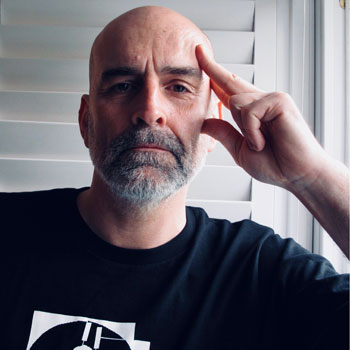
There is really only one fundamental question to ask Matt Kelly, who came up with the idea of The New European to represent the 48 per cent who voted remain in the referendum, and who has now led a successful management buy-out.
Why?
The New European is a well-known story that warms the hearts of newspaper romantics everywhere. The single piece of paper setting out the proposal, the project green-lit by then Archant chief executive Jeff Henry in 24 hours, and on the streets nine days later and on sale at 20,000 newsagents. It was intended to be a four-week pop-up phenomenon.
Four years later, Kelly brought together an illustrious collection of distinguished former newspaper executives, journalists, venture capitalists and high tech entrepreneurs to buy the weekly.
They include Mark Thompson, former chief executive of the New York Times, and director-general of the BBC, Lionel Barber, former editor of the Financial Times and Taavet Hinrikus, co-founder of the fintech group, TransferWise.
A stellar group of 14 investors contributed, according to the Financial Times, around £750,000 to buy a paper selling around 17,000 copies a week from Rcapital, the venture capital group which now owns Archant.
Why?
After all, the New European failed in its implicit raison d'être, neither stopping Brexit nor even, at the very least, winning a second referendum.

What is the future for a tiny single issue publication when, as in this case, Prime Minister Boris Johnson did indeed Get Brexit Done, and despite obvious difficulties, that looks like a matter now settled for the foreseeable future?
“The Economist launched in 1843 because it was pissed off with the Corn Laws. It’s still going very well the last time I saw and it’s moved beyond the issue of the Corn Laws,” replies Kelly who was chief content officer of Archant when he had his New European moment.
“The New European started with, and will always have in its DNA, the anger which gave birth to it, something (Brexit) I still consider to be a really bad mistake for the UK. We are going to see the consequences of Brexit play out not just for a year but for the next decade and possibly a generation,” insists Kelly as he gets into his stride.
The anger of many of the paper’s readers endures and the New European will continue to hold the government to account for the consequences of Brexit.
If there is one thing that defines them all, they are passionately, emotionally, romantically attached to the idea of being European.
Repositioning for post-Brexit world
But Kelly, who is chief executive and editor-in-chief, accepts that there is only a certain time when looking back will be useful before a corner has to be turned.
The aim will then be to channel all the existing emotion towards moving forward and the future.
“Now the place for the New European, the why of the New European, is to be a place for ideas and progress in the UK’s new relationship with Europe. This Europe is also new without Britain, Merkel is going, Macron, who knows, so everything is changing everywhere at a huge speed of knots,” says Kelly who started on local newspapers on his native Merseyside.
Apart from the New European, Liverpool FC is a passion – the 52-year-old Kelly has supported Liverpool since he was six and has watched every game this year on TV.
As for the New European, he now hopes to carve out, in an increasingly polarised country, a large space in the middle of the political spectrum between the New Statesman on the left and the Spectator on the right, that has largely been abandoned – what Kelly calls “the radical centre”.
The New European chief executive will be seeking to attract readers who are increasingly issues-based rather than traditional Labour or Conservative supporters. They are people more interested in everything from climate change to the North-South divide than the minutiae of Westminster politics.
“In particular, our readers want a bridge to the ideas that are happening in Europe not just the EU but Europe as an entity. If there is one thing that defines them all, they are passionately, emotionally, romantically attached to the idea of being European,” says Kelly who lives in Islington, or “Remain Central” as he puts it.
Without the buy-out, it is possible that the New European might not have survived despite being modestly profitable. Indeed, Kelly might have also found himself on his bike as the highest paid Archant employee.
For the venture capitalists, the small, national publication, would quickly have seemed an anomaly in a group of local and regional newspapers and magazines, as would Kelly’s salary.
Anyway, Kelly had promised his wife Nadia he would do three years at Norfolk-based Archant and he had already been there for five years. Putting together the buyout investors was very much a family effort helped by Burlington, the public relations company founded by Nadia Kelly.
Burlington specialises in representing venture capital and technology companies and a number of her clients have invested in the weekly publication, the venture capitalist Robin Klein as well as the Estonian businessman Hinrikus.
They also include Ed Williams, chief executive for Europe, the Middle East and Africa of PR group Edelman and Jeff Henry who is a non-executive director.
Gavin O’Reilly, former chief executive of Ireland’s Independent News and Media group is executive chairman.
Matt Kelly says he has been “blessed” by how much goodwill there has been for the paper.
“I think journalists look at it and they do think it’s a bit mad and a bit of a crazy thing to do but they want it to work, and it’s print and it’s quality even if you are completely opposed to its politics,” says Kelly.
Now the place for the New European is to be a place for ideas and progress in the UK’s new relationship with Europe.
Great minds
The scale of the support, and commitment, can be seen from a brain-storming session held to discuss the paper’s future direction and strategy.
It brought together Barber, O’Reilly, Thompson, Williams and Kelly.
“Imagine how much that would have cost you if you were doing that on a consultancy basis,” notes Kelly who says that apart from getting the New European’s digital house in order, the session helped to crystallise what “the radical centre” meant in real terms and where to place their small number of bets on hiring a few extra journalists.
With the first real investment the title has ever had, staff numbers including editor, Jasper Copping, could rise from three or four to six and maybe, if things go well, to eight or nine by 2025.
Kelly is still undecided on whether to hire a handful of specialist writers or concentrate on more commissioning staff to find a diversity of writers.
What is certain is that the name is staying, as is the newspaper format, although some money may be spent on better quality newsprint.
As long ago as 1999, Kelly, head of digital at the Daily Mirror, persuaded then editor Piers Morgan that the internet was here to stay but still he believes in the future of print.
“I do think we all got a little bit carried away with the absolute death of print; print is a fabulous format for distinctive journalism,” says Kelly who says there is something almost religious about reading a newspaper in print.
He is a great fan of the London Review of Books, for example, and has just had a letter published correcting a couple of mistakes in an article about Cuba.
“I turned to the letters page and saw my name. I have not experienced a thrill of journalistic pleasure as strong since I was about 18,” says Kelly who will also be calling on the unrivalled expertise of Barber and Thompson to help build up a digital subscriptions business on the back of the print edition.
Kelly has had a number of big jobs in journalism and presumably could have gone on to another rather than supervising three or possibly six staff from a small office in the family home in Islington.
“What I have learned about myself is I enjoy operating in a team where we can do things very quickly. I prefer working in a small organisation. I like to be in control of my own destiny and if I screw it up, I want it to be me that screwed it up,” Kelly explains.
He has been happy to sit at a desk with a computer and a couple of filing cabinets and rediscover the intensity of family life with the three Kelly children aged 6 to 15 during lockdown.
“I think a lot of people need the buzz of the newsroom but I am not one of those people,” he adds.
Print is a fabulous format for distinctive journalism.
Future prospects
Kelly has dealt very well with “the why” but what is the realistic future for the small stand-alone publication?
He believes it will be “very viable” to double the current sale over the next three or four years and that would produce enough profit to expand beyond that.
“We are never going to be the Economist. We are never going to be the Spectator, certainly not in the medium term.”
Kelly believes, however, that eventually, The New European could get to half the sales of the Spectator, which broke the 100,000 barrier for the first time in February.
“The New European is a very appealing business,” says Kelly who adds that the current level of investment guarantees “much more” than another two years of life.
Not bad for a title that was seen as a four-week pop-up.
For Matt Kelly, the award-winning publication could hardly be more important in difficult times.
“I am optimistic about the future of Britain and Europe. Life is short and time is finite and I am determined to do as much as I can to be part of this conversation about making Britain a better place – without being too sanctimonious,” he says.
Matt Kelly concludes: “In these incredible times, all I can say is how frustrating would it be if I didn’t have a vehicle like The New European to be active with.”
What I have learned about myself is I enjoy operating in a team where we can do things very quickly.
This article was first published in InPublishing magazine. If you would like to be added to the free mailing list, please register here.












